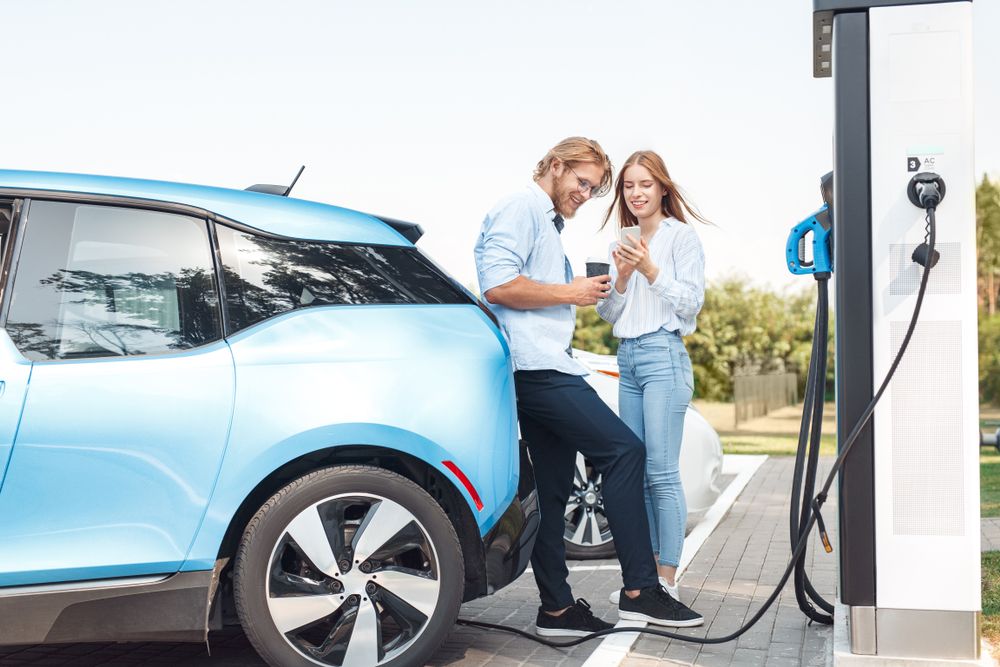As the world moves toward a more sustainable future, electric vehicles (EVs) are becoming an increasingly popular choice for environmentally-conscious consumers. They offer a cleaner, greener alternative to traditional gasoline-powered cars, but the transition to EVs can still feel expensive, especially with the higher upfront costs of some models. Fortunately, governments at local, state, and national levels are offering a variety of incentives to help make EVs more affordable and encourage their widespread adoption. These incentives can provide significant savings, rebates, and perks that make the shift to electric driving more accessible for everyone.
In this article, we’ll explore the different types of EV incentives you should know about, including government rebates, tax credits, grants, and perks that can save you money and make your electric vehicle purchase more affordable.
Federal EV Incentives
The U.S. government offers a range of incentives to help reduce the cost of buying and owning an electric vehicle. These incentives can include tax credits, rebates, and deductions, as well as funding for EV infrastructure. Let’s take a closer look at the main federal incentives available:
1. Federal Tax Credit for EVs
One of the most significant federal incentives for EV buyers is the Electric Vehicle Tax Credit. Under the Inflation Reduction Act of 2022, the federal government offers a tax credit of up to $7,500 for purchasing a new all-electric or plug-in hybrid vehicle. However, there are a few important details to keep in mind:
- Eligibility: The credit is available for both individuals and businesses purchasing eligible new electric vehicles. However, not all vehicles qualify for the full $7,500 credit. The vehicle must meet specific requirements, including being manufactured by an eligible automaker, having a certain battery capacity, and meeting price limits (currently set at $55,000 for passenger vehicles and $80,000 for SUVs, trucks, and vans).
- Income Limits: To ensure that these incentives benefit a wide range of consumers, there are income limits for eligibility. For instance, individuals making over $150,000, and joint filers making over $300,000, may not qualify for the full tax credit.
- Manufacturer Cap: Previously, the tax credit phased out after a manufacturer sold 200,000 EVs. However, under the new rules, this cap has been eliminated for most automakers. That means buyers can now take advantage of the credit for a longer period.
- Used EV Tax Credit: The federal government also offers a $4,000 tax credit for used electric vehicles, provided the car meets certain conditions. The credit is available for used cars purchased from dealerships and is limited to vehicles that are at least two years old. There are also price and income limits for eligibility.
2. EV Charging Station Tax Credit
In addition to tax credits for purchasing an electric vehicle, the government also provides incentives for installing a home EV charging station. If you purchase and install a qualified charging station, you could be eligible for a 30% tax credit (up to $1,000) under the Alternative Fuel Vehicle Refueling Property Credit.
This tax credit applies to both residential and commercial charging stations, making it easier for EV owners to charge their vehicles at home. If you're considering installing an EV charger at home, this is an incentive that can reduce your overall costs.
3. Grants and Loans for EV Infrastructure
For those looking to install charging stations in public spaces or businesses, the federal government also offers grants and loans to support EV infrastructure development. Through programs like the Charging and Fueling Infrastructure Program and the Clean Cities Program, businesses and local governments can receive funding for installing charging stations.
These programs help to expand the availability of charging infrastructure across the country, making it easier for drivers to find charging stations and use EVs as their primary mode of transportation.

State-Level EV Incentives
In addition to federal incentives, many states offer their own unique benefits for purchasing and owning an EV. These incentives vary widely from state to state, but some of the most common include:
1. State Rebates and Tax Credits
Many states provide rebates or tax credits to help reduce the cost of purchasing an EV. These incentives can range from a few hundred dollars to several thousand, depending on the state. Some states, such as California, offer rebates as high as $2,000 for the purchase or lease of an electric vehicle. Other states, including Colorado, New York, and New Jersey, offer tax credits or rebates as well.
Check with your state’s Department of Motor Vehicles or energy office for specific details on state-level incentives available in your area.
2. EV Registration and Sales Tax Exemptions
Some states also offer sales tax exemptions or reduced registration fees for electric vehicles. For instance, in Texas, EV owners can save on sales tax when purchasing an electric vehicle, while in Massachusetts, there are reduced registration fees for electric vehicles.
3. Carpool Lane Access
In some states, electric vehicle owners are given access to high-occupancy vehicle (HOV) lanes or carpool lanes, even if they are driving alone. This perk can significantly reduce commute times, particularly in busy metropolitan areas, and is offered in states like California, Virginia, and Washington.
4. Free or Discounted Charging
Some states and local governments partner with charging companies to provide free or discounted EV charging for certain electric vehicle owners. For example, Washington D.C. offers free charging for electric vehicles parked at certain locations. Additionally, many states are working to expand public charging infrastructure, providing incentives to install more charging stations in convenient locations.
Local Incentives and Utility Perks
In addition to federal and state-level incentives, local municipalities and utility companies are also offering perks to encourage EV adoption.
1. Local Rebates and Tax Credits
Cities and local governments sometimes provide additional rebates or tax incentives for purchasing an electric vehicle or installing a home charging station. For instance, San Francisco offers rebates for purchasing EVs, while Seattle offers rebates for home charger installation. These incentives can help reduce your overall purchase cost or charging setup.
2. Discounted Electricity Rates for EV Charging
Utility companies are also getting in on the action by offering discounted electricity rates for EV owners who charge their cars during off-peak hours. These discounts encourage energy-efficient driving behaviors and help alleviate strain on the electrical grid during peak hours. For example, Pacific Gas and Electric offers special EV charging rates, and other utilities around the country are following suit.
Some utilities may also offer rebates for purchasing a home EV charger, making it more affordable to set up your charging station at home.
Perks of Owning an EV Beyond the Incentives
While the financial incentives are a significant draw for many EV buyers, there are additional perks that can make owning an electric vehicle even more attractive:
- Lower Operating Costs: EVs have fewer moving parts than traditional cars, which means they require less maintenance. No oil changes, fewer brake replacements, and fewer parts that wear out over time translate to lower overall maintenance costs.
- Long-Term Savings: While the upfront cost of an EV can be higher than a traditional car, owners save significantly over time thanks to lower fuel costs. EVs are much cheaper to fuel than gas-powered vehicles, especially if you charge at home using lower-cost electricity.
- Environmental Benefits: Beyond the financial incentives, driving an EV reduces your carbon footprint and helps reduce air pollution. By choosing an electric vehicle, you’re contributing to the fight against climate change and helping create a cleaner, healthier environment.
Don’t Miss Out on EV Incentives
Electric vehicles are no longer just a futuristic concept—they’re here, and they’re more accessible than ever. Thanks to a variety of government rebates, tax credits, and perks at the federal, state, and local levels, making the switch to an electric vehicle is more affordable than you might think. From tax incentives and rebates to discounted electricity rates and access to carpool lanes, there are many ways to save when buying and owning an EV.
If you're considering purchasing an electric vehicle, take the time to research the specific incentives available in your area. By leveraging government rebates, perks, and other incentives, you can significantly reduce the upfront cost of your EV and start enjoying the long-term savings and environmental benefits of electric driving.
Incentives for EVs are likely to continue evolving, so be sure to stay up to date on new programs and opportunities that can help make your transition to an electric vehicle even more rewarding. Don’t miss out—take advantage of these perks today!





